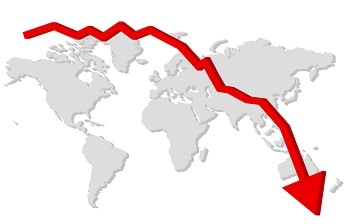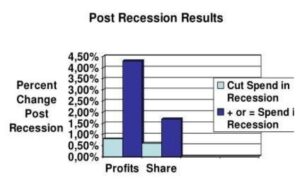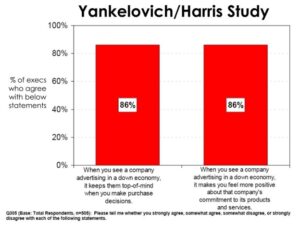
Visits: 16
– The Effects of Societal & Financial Crises On Marketing and Business Strategies
Courtesy Roger Grace Associates by Roger H. Grace: Considering the current state of affairs worldwide, I was compelled to author this article, which will address the major impact of the current unprecedented global pandemic resulting from the COVID-19 virus and the resulting economic crisis, i.e., a slowdown and possible recession. This relates to business and marketing strategies for a broad range of markets, including travel, hospitality, restaurants, automobiles, real estate, and consumer goods.
Keep in mind that MEMS (Micro Electro Mechanical Systems) and sensors continue to play a huge role in the automotive and consumer markets. As Chicken Little exhorts, “The sky is falling,” and the question is, what to do?
Historical Perspective
The US economy has survived several recessions during the past half-century, many of which I have experienced in my 35-plus years as a technology marketer. I cannot forget the impact on the technology marketing community, including several of my clients, as a result of the “dot com” boom and bust of 2000/2001 and the worldwide economic crisis of 2008 to 2009. Most recently, the end of March 2020 closed as the worst quarter the stock market saw in 12 years with the Dow, S&P 500, and Nasdaq losing 23%, 20%, and 14%, respectively.
Recently, Goldman Sachs revised its earnings estimate for the year for US companies to 0% growth in 2020. First-time filing of unemployment claims was 6.65 million for the week ending March 27, 2020. This will more than likely be a bellwether of things to come.

Startups are a key element in the creation of new products and services necessary to create the next generation of products and services. Bottom line, I believe that we are at the beginning of some very difficult times, both healthwise and businesswise.
The question is, how to overcome the effects of theseissues. My answer, in the words of George Santayana, is, “Those who forget the past are condemned torelive it.”
Many reports have been published* and address the impact of recession on businesses and their sales, market share, and profits. While no two recessions are alike, below is provided a summary of selected historical data*, which address major recessions over the past half-century, management’s response, the resulting effect on business and marketing strategies, and the financial outcomes postrecession.
To help marketers of MEMS and sensors best emerge unscathed, I provide my recommendations for minimizing negative effects. Additionally, it is well-known that R&D and new product development are adversely affected during these troubled times.
Recession of 1970: American Business Press/Meldrum and Fewsmith reported, ”Sales and profits can be maintained and increased in recession years and in the years immediately following by those who are willing to maintain an aggressive marketing posture, while others adopt the philosophy of cutting back on promotional efforts when sales appear to be harder to get.”
Recession of 1974-75: American Business Press/Meldrum and Fewsmith state, “Companies which did not cut marketing expenditures experienced higher sales and net income during those two years and the two years following than those companies which cut in either or both recession years.”
Recession of 1981-82: McGraw-Hill published, “Businesses that maintained or increased their ad spending during the recession averaged higher sales growth during the recession and in the following three years.”
Recessions of 1985, 1990-91, and 2001 showed sales for companies that remained aggressive during the recession enjoyed sales that were 2.5 times the average of all other businesses.
Recession of 2008-2009, which was driven by lack of liquidity and the banking crisis, showed advertising outlays falling by 13%, with research showing that firms who cut their ad spending during the recession typically saw sales and income declines in double figures.
The consensus of these studies establishes that organizations who cut spending on advertising emerge from the recession with lower market share.

Fig. 1: The Profit Impact of Marketing Strategy (PIMS) Study, conducted in 1999, investigated 183 UK based companies and compared advertising spending during recessions to market share and profit during recovery. Those that spent in recession did better afterward than those that did not. Courtesy: PIMS
Market share has a positive correlation coefficient on profit margin as discussed in several publications, including the seminal Profit Impact of Marketing Strategy (PIMS) study [7]. Additionally, organizations who maintain or increase their spending enhance their market credibility and brand equity stated in a study conducted by Yankelovich and Harris, which has both short- and long-term benefits.

Fig. 2: A total of 505 executives were queried as to their opinions of companies who advertise in a down economy. As a result, 86% provided favorable opinions in purchasing commitments. Courtesy: Yankelovich/Harris
I rest my case. And in the words of Henry Ford, “A man who stops advertising to save money is like a man who stops a clock to save time”.
Recommended Actions
MEMS and sensor marketers need to plan and execute the following actions and in a timely fashion, like now! Act quickly, creatively, objectively, and decisively.
Review all elements in the marketing mix and create a program to objectively monitor and assess web analytics and other tools for their return on investment (ROI). Add financial support to what is producing high level results while reducing and/or cancelling those that do not meet expectations. And do not be reactionary. You can’t win the game unless you know the score.
- Continue to market/promote your organization’s product offerings and, if you can, convince management to increase spending in high ROI areas.
- Provide extra care for your current customers to keep them since it will be more difficult to create new customers during the downturn.
- With the advent of social distancing, e-commerce and e-marketing should be accelerated. Many conferences/trade shows have been cancelled, so take up the slack with webinars, blogs, etc.
- Exploit the possible price reduction in the cost of media as a result of slumping media sales since media-space supply exceeds demand, resulting in falling prices. This is an ideal opportunity to invest in price-reduced media and a unique opportunity to enhance market share (and thus profitability) against weaker competition
Summary
Savvy marketers need to judiciously utilize all of the elements of the marketing mix to achieve optimum success, especially during times of economic downturn. A successful marketing plan must address the pros and cons of each of the marketing mix elements from a cost and effectiveness perspective.
Marketers must include mechanisms for measuring the effectiveness of each element of the marketing mix and adjust their marketing programs in a timely fashion. These elements need to include the traditional elements of trade shows, which are likely to be cancelled for the near future, print advertising, and collateral in addition to the new elements of networked social media, websites, blogs, podcasts, and webinars.
There also is a lesson learned from the brief analysis of selecting marketing strategies based on the strategies and the results thereof from market research case studies conducted in the US in similar times of societal and financial unrest.
The bottom line of these case studies was that those who reduce spending in times of economic downturn will emerge with lower market share resulting in lower profitability. There is ample evidence that maintaining share of voice (SOV) at or above share of market (SOM) will result in longer-term improvement in profitability.
Learn More
The topics of converging technology-based “resilience” strategies and implementations necessary for survival in times of environmental and health crisis will be addressed within the many tracks scheduled for the upcoming MANCEF Commercialization of Emerging Technologies Conference (COMS) to be held October 19-22, 2020, in Rockville, MD.
For more information, please visit www.mancef.org/COMS2020/
REFERENCES
- G. Santayana, The Life of Reason, 1905-1906
- A. Biel, S. King; Advertising in a Recession-The Benefits of Investing for the Long Term; NTC Publications; 1999
- J. Pollack, How Advertising During a Recession Can Preserve Your Brand, MNI Targeted Media
- S. Scott; If There is a Recession in 2019, Here’s What Marketers Should Do; The Promotion Fix, The Drum; January 21, 2019
- D. Long, The History of Advertising During a Recession, F&I and Showroom, March 1, 2009
- C. Shea, Marketing in a Recession: What Do the Studies Really Tell Us, June 16, 2009
- R. Buzzell et al., Market Share-A Key to Profitability, Harvard Business Review, January 1975
About the Author:
Roger H. Grace is president of Roger Grace Associates, a Naples Florida based strategic marketing consulting firm specializing in high technology. His educational background includes a BSEE and MSEE (as a Raytheon Company fellow) from Northeastern University, and the MBA program at Haas Graduate School of Business at U.C. Berkeley. He has specialized in sensors and ICs for over 35 years with a focus on micro electromechanical systems (MEMS). He has authored over 75 technical papers and articles, organized, chaired, and spoken at over 50 international technical conferences. Roger is frequently quoted as an industry expert in major international technical and business publications on the topic of technology commercialization. He was the co-founder, past president, and currently is the Vice President of the Americas of the Micro, Nano and Emerging Technologies Commercialization Education Foundation (MANCEF) and has served on the Board of Directors of the Florida Manufacturing Extension Partnership from 2008 to 2014. For more details, contact Roger via email at rgrace@rgrace.com and to learn more, visit Roger Grace Associates.
*Reprinted with the permission of Sensors Daily Newsletter
Related article: Ten years of crisis, research and results in the 10 most innovative economies